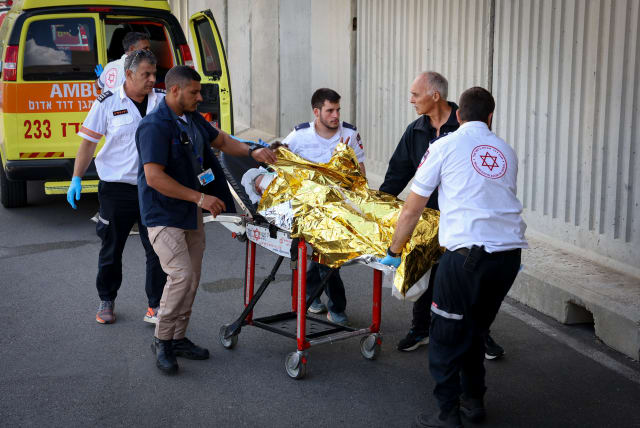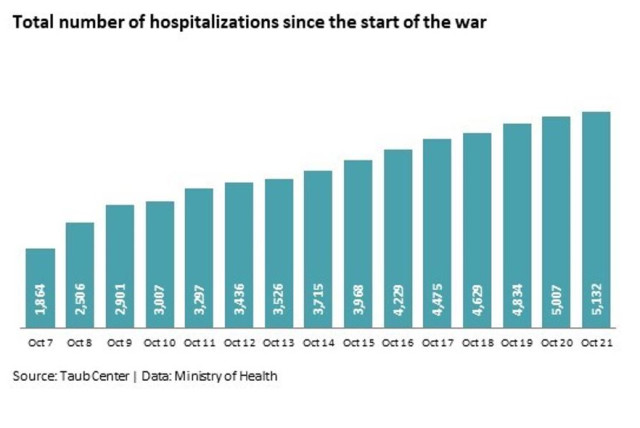Taub Center says hospitals and staff have performed beyond expectations since war began

Although the system seems stretched to its limit even in normal times, the complex system has surpassed expectations to provide care for the thousands of wounded since the war broke out.
Although Israel’s medical centers have in normal times been overcrowded, with patients facing long queues in many departments and the number of wounded in the Hamas incursion and the war far greater than any emergency scenario, the system in all of its parts has performed beyond expectations.
This is the verdict of Prof. Nadav Davidovitch, chair of the Health Policy Program at Jerusalem’s Taub Center for Social Policy Studies and head of the School of Public Health at Ben-Gurion University of the Negev (BGU) in Beersheba.
Based on recently released Health Ministry data on the total number of hospitalizations since the beginning of the war, of new hospital admissions, and of those in critical condition, Davidovitch has been tracking the status of the health system since October 7.
He stressed that there is great importance to the maximum integration of all parts of the system – hospitalization, community care, public health, and mental health – especially now. “Today in Israel, beyond the issue of those killed, wounded, or taken hostage, there are tens of thousands who have been evacuated from their homes and are in need of comprehensive care. Unfortunately, the gaps between geographic areas and different parts of the system that are well known in everyday life are even more striking in time of war.”
He added that “while the system works to bridge these gaps, it is stretched to its limits in terms of labor force, and especially in specific areas like mental health, the situation is particularly difficult. This is is without mentioning the emotional toll on staff, including those who deal with the most difficult job of identifying the dead. Nevertheless, we cannot stop and simply deal with the physical wounds, we must also consider emotional aspects and the strength of the community.”
In effort to get hostages care, appeal to years-long relationships
This week Davidovitch participated in a meeting between the families working for the release of the hostages and those missing along with representatives of the World Health Organization (WHO) where they heard personal stories of the representatives of the families.
“International efforts are taking place with all international health organizations, most importantly with the Red Cross and the WHO, to give the hostages medical care, to provide information to the families who are living with tremendous uncertainty, and to return all of the hostages home as quickly as possible. I hope that these relationships that we have nurtured over years with international health organizations will bear fruit and will not be just empty declarations,” he concluded.
The Taub Center is an independent, non-partisan socioeconomic research institute that provides decision makers and the public with research and findings on some of the most critical issues facing Israel in the areas of education, health, welfare, labor markets, and economic policy.
Jerusalem Post Store
`; document.getElementById("linkPremium").innerHTML = cont; var divWithLink = document.getElementById("premium-link"); if (divWithLink !== null && divWithLink !== 'undefined') { divWithLink.style.border = "solid 1px #cb0f3e"; divWithLink.style.textAlign = "center"; divWithLink.style.marginBottom = "15px"; divWithLink.style.marginTop = "15px"; divWithLink.style.width = "100%"; divWithLink.style.backgroundColor = "#122952"; divWithLink.style.color = "#ffffff"; divWithLink.style.lineHeight = "1.5"; } } (function (v, i) { });

